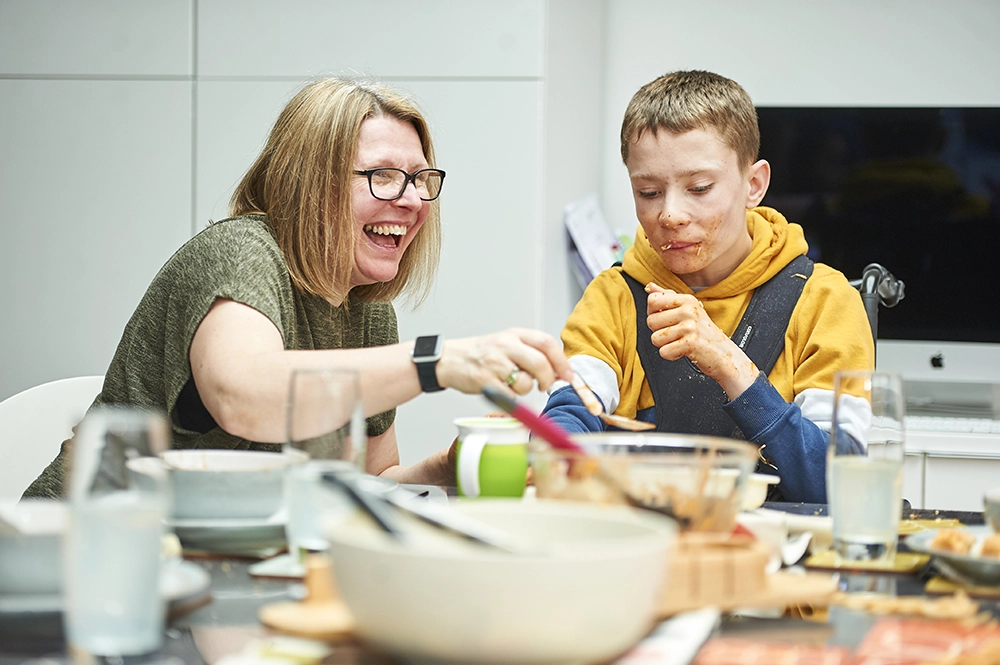The difference between fostering for your local council and an IFA
10.05.23 | 4 minute read

When deciding to becoming a foster carer, there are a number of options when it comes to who to foster for. Most people foster for their local council but they might also chose to foster for a not-for-profit organisation, such as a charity, or for a private agency (known as IFAs).
What's the difference between fostering for your local council and an IFA?
But what’s the difference? Are you better off with your local council or contacting a private agency? We spoke to three experienced foster carers in Greater Manchester who have fostered for both their local council and other providers to get their perspective.
One of the biggest reasons people choose to foster with their council is to keep children local. Gail and John have been fostering for 26 years and started their fostering journey with Wigan Council before spending another 12 years with a private agency. They returned to Wigan 18 months ago.
Gail says that the main reason they now foster with Wigan Council is the chance to help children remain in their local communities, close to all the important people in their lives. “Children who come to live with us have the chance to continue going to the same school and staying in touch with all their friends,” Gail says. “It means we spend less time on the school run or taking them to activities. They know where they are and don’t suffer the upheaval that other children in care have to deal with.”
Their former agency provided good training and support, Gail says, but, increasingly, the children they were being asked to care for came from outside their local area. This caused additional disruption to children and young people, who felt their views were not being taken into account. “We were just too far away, and we felt that we wanted to be available to local children, on our doorstep.”
Local support and a community of foster carers
As experienced foster carers, Gail says that she and John understand the constraints that local councils must work with when it comes to resources. “We know that they want to be able to do more for young people in care. We are working with some remarkable people who are not doing it for the money but are trying to make a difference. This means a lot to us.”
Working with others in the community and the use of local support networks has been a huge benefit for those who foster with their local council. Geoff and his family have been fostering for eight years. They joined Stockport Council from a private agency six years ago and say they are delighted with the move. They are now involved with Stockport’s Mockingbird foster care hub, which strengthens the support available to local foster carers. “The main reason we changed was because we wanted to care for children in our local community,” says Geoff. “We found that we were being asked to look after children from outside the local area, which was not something we felt comfortable with. Stockport Council was appealing for more local foster carers, so they didn’t have to send local children and young people to foster homes that were a long way away. We felt that we could make a difference.”
Geoff says that they have also enjoyed being connected to foster carers who live and work in the same local community. “In the past, we would meet foster carers who lived quite a long way from us. Now we get a chance to share local insights and work with teams that are connected to other local foster carers, so everyone benefits.”
Andy and Ruth, foster carers since 2014, switched from a private agency to Tameside Council. They decided to make the move when their supervising social worker changed jobs. “We were happy with the agency but it felt like a good time to consider other options,” says Andy. “At the time, the children we were fostering were from Tameside so we already had a strong connection. Our agency was based in Bradford and had grown a lot over the years from what used to be family-run business.”
Like Geoff, Andy says that one of main benefits has been to connect with local foster families and to be able to support each other. “It is more of a community of foster carers, people you might bump into when you are out shopping and have a chat.”
Andy and Ruth also appreciate regular meetings with the managers of Tameside’s fostering service. “We meet once every quarter and talk about what’s going on and how we can work together to improve the service. There is a real connection because we are talking about local issues and concerns.”
What's the next step?
There a lot of options available to you as a foster carer, and it's important to make a decision that's right for you. If you’re still unsure whether to reach out to your local council, why not read more about the benefits here.
Whatever route you take, you’ll be providing a young person in need with a safe, stable home – and that’s the most important thing.

.webp)





Leave a comment
Start a discussion. Post with kindness.